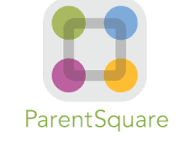Dive Brief:
- Bolstered by a $10 million prize from the nonprofit XQ Super School Project, California's Vista High School is embracing a progressive view of what it means to offer students personalized learning — to the point that skateboarding has even become a physical education option, according to The Hechinger Report.
- Vista's personalized learning push is traced back to four years ago, when acting superintendent Matt Doyle helped complete school experience interviews with some 2,000 middle- and high-school students, the results of which showed that the word "irrelevant" was overwhelmingly common as a descriptor.
- That process — coupled with issues around chronic absenteeism and a 10% dropout rate — led the school to pilot its "personalized learning academy," which embraced a more flexible classroom environment, new approaches to classroom discipline, and a better student:teacher ratio, helping it to land the aforementioned XQ prize.
Dive Insight:
Like many similar schools transitioning to personalized learning, Vista High hasn't gone without its share of speed bumps — especially when it comes to getting the right mix of student freedom and teacher control, and the right amount of experimentation with nontraditional topics like skateboarding, as The Hechinger Report piece notes.
Personalized learning can be powerful in boosting student engagement and achievement, as seen in smaller school models like the Montessori system, but scaling it to traditional school sizes has proven difficult. Often, larger class sizes find that their efforts result in a model all too similar to where they started, but with more tech and open seating. It's a challenge that organizations like XQ and AltSchool have sought to tackle in a variety of ways.
Vista's willingness to experiment with tying student interests like skateboarding to curricula is particularly worth noting, especially from an interdisciplinary perspective. With skateboarding, for example, the applications can go beyond physical education to subjects like physics and trigonometry. Or if students are into gaming, you can make a connection by tying how some popular titles like the Legend of Zelda require critical thinking for puzzle solving. Identifying students' passions and making the connection to the classroom can go a long way in making content relevant for them and increasing their understanding, producing a fun and memorable learning experience along the way that can last a lifetime.












